On Friday the 13th 2020, in light of fighting corona horror, a massive social media campaign was kicked off by Tedros Adhanom Ghebreyesus, the Director of the World Health Organization.
(For the uninitiated, Friday the 13th is considered an unlucky day in Western superstition).
The name given to the campaign is ‘Safe Hands Challenge’, which urges people to wash their hands for 20-30 seconds to prevent the transmission of disease.
https://twitter.com/WHO/status/1238404251933704193
Within a few days of its launch, the campaign generated massive participation and media hype. Secretary-General of the UN António Guterres, Philanthropist Melinda Gates, UNICEF Goodwill Ambassador Priyanka Chopra, Journalist Fareed Zakaria, various heads of state, and celebrities posted videos of themselves washing their hands with soap and water.
Washing hands with soap and water is not only critical to stopping the spread of the virus for yourself, but also prevents someone else from getting infected by it.
Studies have indicated that 20-30 seconds of simple handwashing with soap and water reduces the bacterial count by 58%, while alcohol-based hand rubs reduce the count by 83%.
We should not question the objective and motive of the campaign, given the unprecedented situation, created by COVID-19.
The viral nature of the campaign helped in increasing the adoption and bringing a cultural change in hygiene practices across the globe.
Then what’s the fuss? We need to wash our hands and we need water
If you watch the WHO video closely, you would observe that tap that Mr. Tedros Adhanom uses never get closed, wasting some precious liters of water.
We don’t want to sound cynical but many of the social media videos that got posted afterward, follow a similar pattern where people can be seen opening the tap and not closing it (when rubbing their hands with the soap).
While the world understood the demand for personal hygiene, there appears to be fundamental neglect of water conservation in the process. Without taking anything away from the importance of hand wash, we should be cognizant of the acute water scarcity the world is staring at.
Interestingly, about 9 days later, on 22nd March, we celebrated World Water Day, which is observed annually to highlight the importance of freshwater and its sustainable management.
Some quick facts and statistics gathered from the United Nations Development Programme (UNDP) website reveal a scary picture.
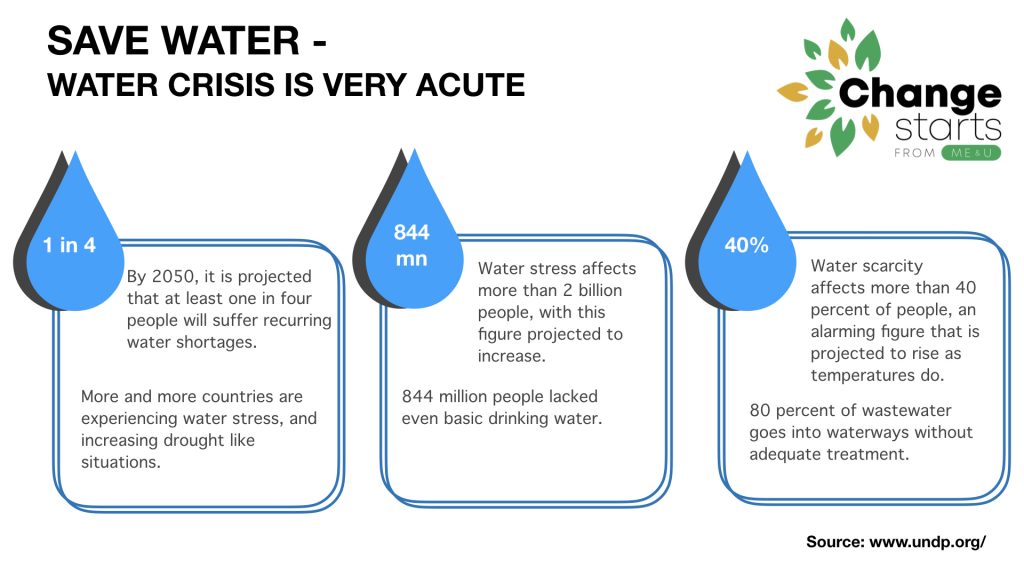
The people who don’t believe in random numbers can Google the severe water crisis that the South African city Cape Town faced in 2018. The prolonged rainfall deficit caused an acute water shortage in the South African city.
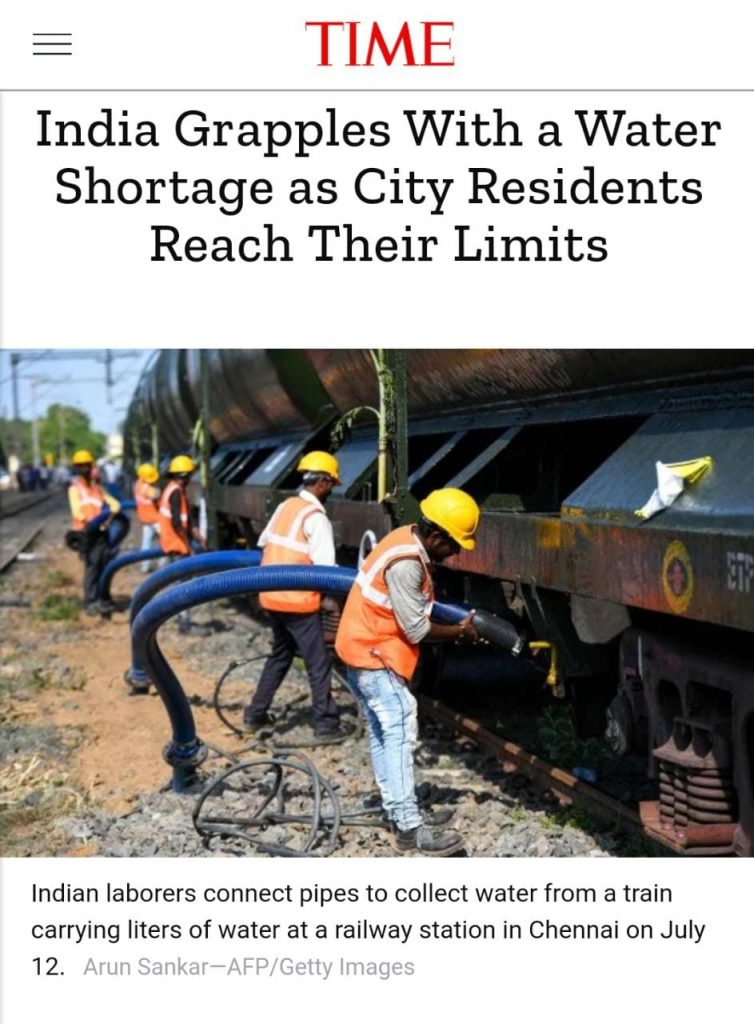 In 2019, the southern Indian city of Chennai home to nearly 4 million people, experienced one of the worst droughts in its history with four of its water reservoirs depleting to nothingness.
In 2019, the southern Indian city of Chennai home to nearly 4 million people, experienced one of the worst droughts in its history with four of its water reservoirs depleting to nothingness.
With rising global temperatures, depleting lakes & rivers and massive urbanization, many cities around the world are facing acute water shortages.
Imagine a scenario, if there is no water and there is another global pandemic like Corona. What will we do? Where will we go?
Solutions to Save Water
While initiatives like rainwater harvesting, micro-irrigation, and wastewater re-cycle should be strongly encouraged among the communities but considering the investment and resources it needs, it is not something that can be managed at an individual level.
Like the Safe Hand Challenge, we need to do something around ‘Save Water’ as well; people need to be educated about water scarcity and be judicious about water conservation.
The mindset needs to be changed to efficiently use and reuse water. If we don’t take care of it now, there might be another kind of pandemic, which can create devastation greater than Corona.
So here you go, below are some simple Water Conservation Tips
Below are a few techniques to save water at a family or an individual level, which don’t require any monetary investment, but some consideration and patience.
-
Hand Wash
Try to close the tap when not directly washing and reduce the pressure to a minimum.
-
Bath and Showers
Showers are typically the third-largest source of water consumption after toilets and clothes washers. We can save about 500 liters a month by reducing shower time by 3-4 minutes
Another simple technique, If possible, place a bucket beside your shower area, excess water which drips down can be collected in the bucket. We can collect about 100 liters a month by following this simple method.
Dirty water collected after the shower or the wash, can be used to flush the toilet.
-
Washing fruits and vegetables
Wherever possible, we can wash the fruits and vegetables in a bucket or a bowl, such that excess water can be collected. The excess water can be used for watering the plants.
-
Mopping floors
Use the least amount of water for mopping the floor, instead of a big bucket, use it in small installments. Once the mopping is complete, pour the excess and dirty water into the plants and garden.
-
Washing dishes
Wash your kitchen utensils immediately, when it is still moist, and do not wait until the food is dried, which makes it more difficult to clean and invariably consumes more water.
Another quick tip to wash dishes is to fill the kitchen sink with all the soiled vessels, drown them with water and add a few drops of washing liquid. It becomes slightly easier to wash after that.
-
Clothes Wash
Use the washing machine, when we have enough clothes for optimum utilization.
If there is a possibility, water that is flushed after the last cycle in the washing machine can be collected to be used for activities like floor cleaning.
-
Drink your Glass
Finally, as simple as drinking your water. We should make it a practice to consume the water which we put in our glasses and not throw it that.
Here is a quick video that Change Started has made on tips to save water, if you like it, you can share it with your friends and bookmark it for future reference.

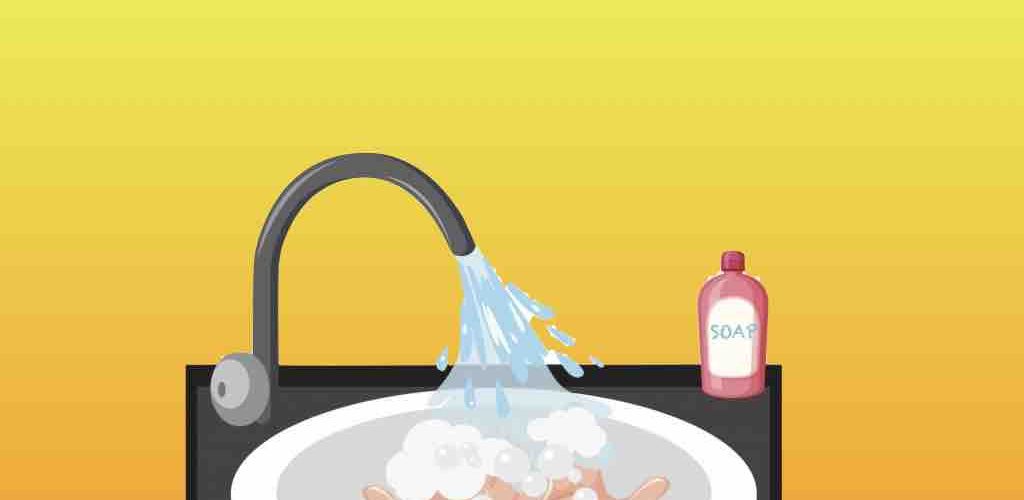
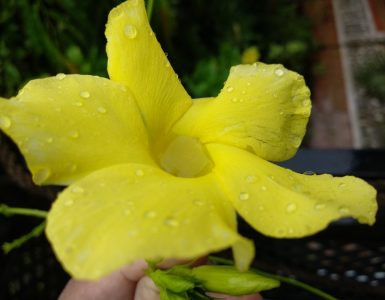
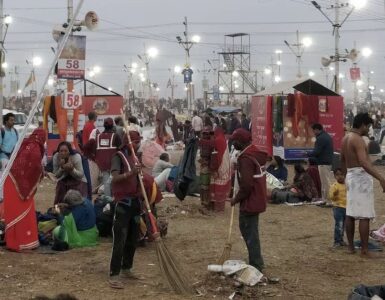

Add comment